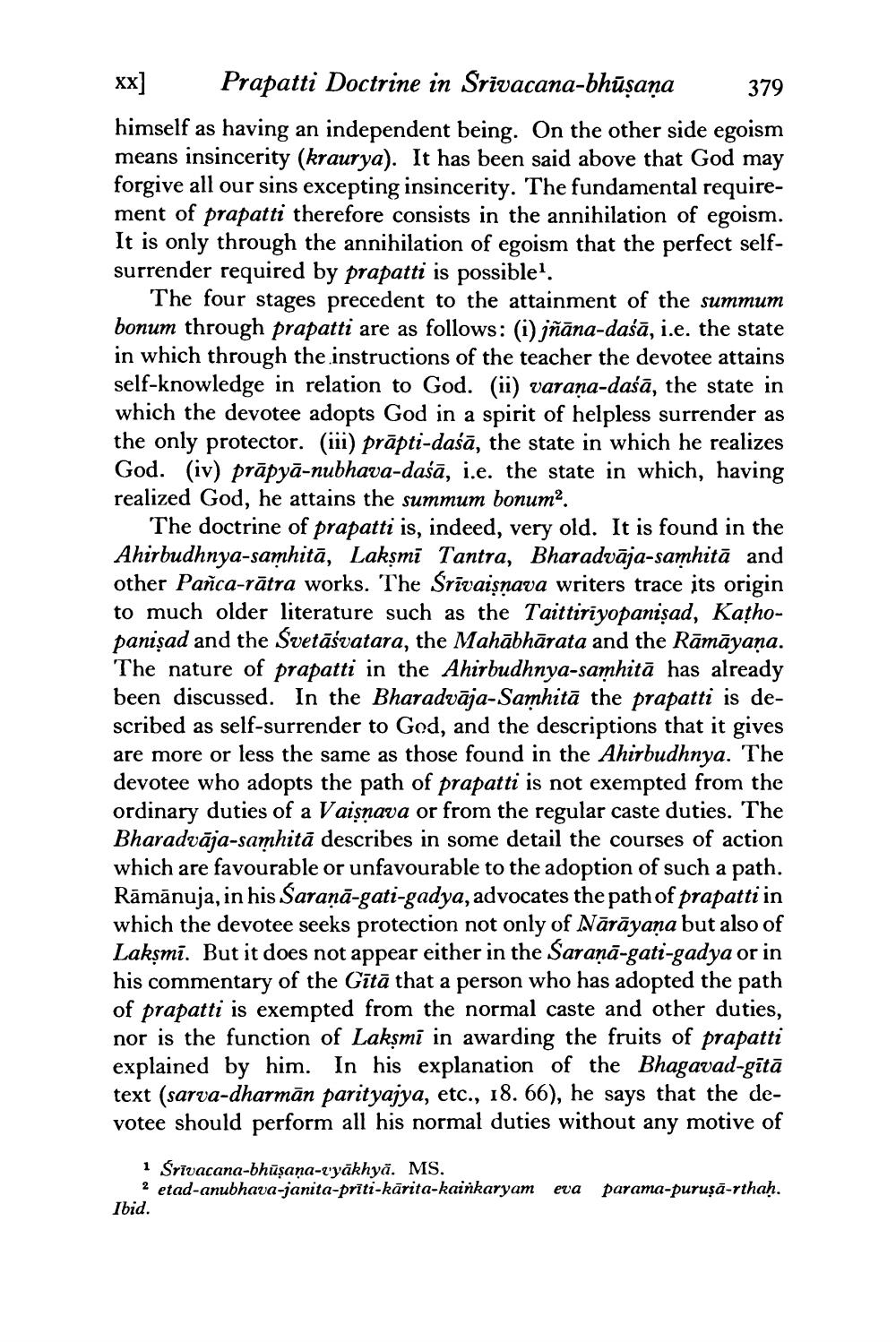________________
xx]
Prapatti Doctrine in Srivacana-bhūṣaṇa
379
himself as having an independent being. On the other side egoism means insincerity (kraurya). It has been said above that God may forgive all our sins excepting insincerity. The fundamental requirement of prapatti therefore consists in the annihilation of egoism. It is only through the annihilation of egoism that the perfect selfsurrender required by prapatti is possible1.
The four stages precedent to the attainment of the summum bonum through prapatti are as follows: (i) jñāna-daśā, i.e. the state in which through the instructions of the teacher the devotee attains self-knowledge in relation to God. (ii) varaṇa-daśā, the state in which the devotee adopts God in a spirit of helpless surrender as the only protector. (iii) präpti-daśā, the state in which he realizes God. (iv) prapyā-nubhava-daśā, i.e. the state in which, having realized God, he attains the summum bonum2.
The doctrine of prapatti is, indeed, very old. It is found in the Ahirbudhnya-samhitā, Lakṣmī Tantra, Bharadvāja-samhitā and other Panca-rātra works. The Śrīvaisnava writers trace its origin to much older literature such as the Taittiriyopaniṣad, Kathopanisad and the Svetāśvatara, the Mahābhārata and the Rāmāyaṇa. The nature of prapatti in the Ahirbudhnya-samhita has already been discussed. In the Bharadvaja-Samhita the prapatti is described as self-surrender to God, and the descriptions that it gives are more or less the same as those found in the Ahirbudhnya. The devotee who adopts the path of prapatti is not exempted from the ordinary duties of a Vaisnava or from the regular caste duties. The Bharadvaja-samhitā describes in some detail the courses of action which are favourable or unfavourable to the adoption of such a path. Rāmānuja, in his Saraṇā-gati-gadya, advocates the path of prapatti in which the devotee seeks protection not only of Nārāyaṇa but also of Laksmi. But it does not appear either in the Sarana-gati-gadya or in his commentary of the Gita that a person who has adopted the path of prapatti is exempted from the normal caste and other duties, nor is the function of Lakṣmi in awarding the fruits of prapatti explained by him. In his explanation of the Bhagavad-gītā text (sarva-dharmān parityajya, etc., 18. 66), he says that the devotee should perform all his normal duties without any motive of
1 Śrīvacana-bhūṣaṇa-vyākhyā. MS.
2 etad-anubhava-janita-prīti-kārita-kainkaryam eva parama-puruşă-rthaḥ.
Ibid.




